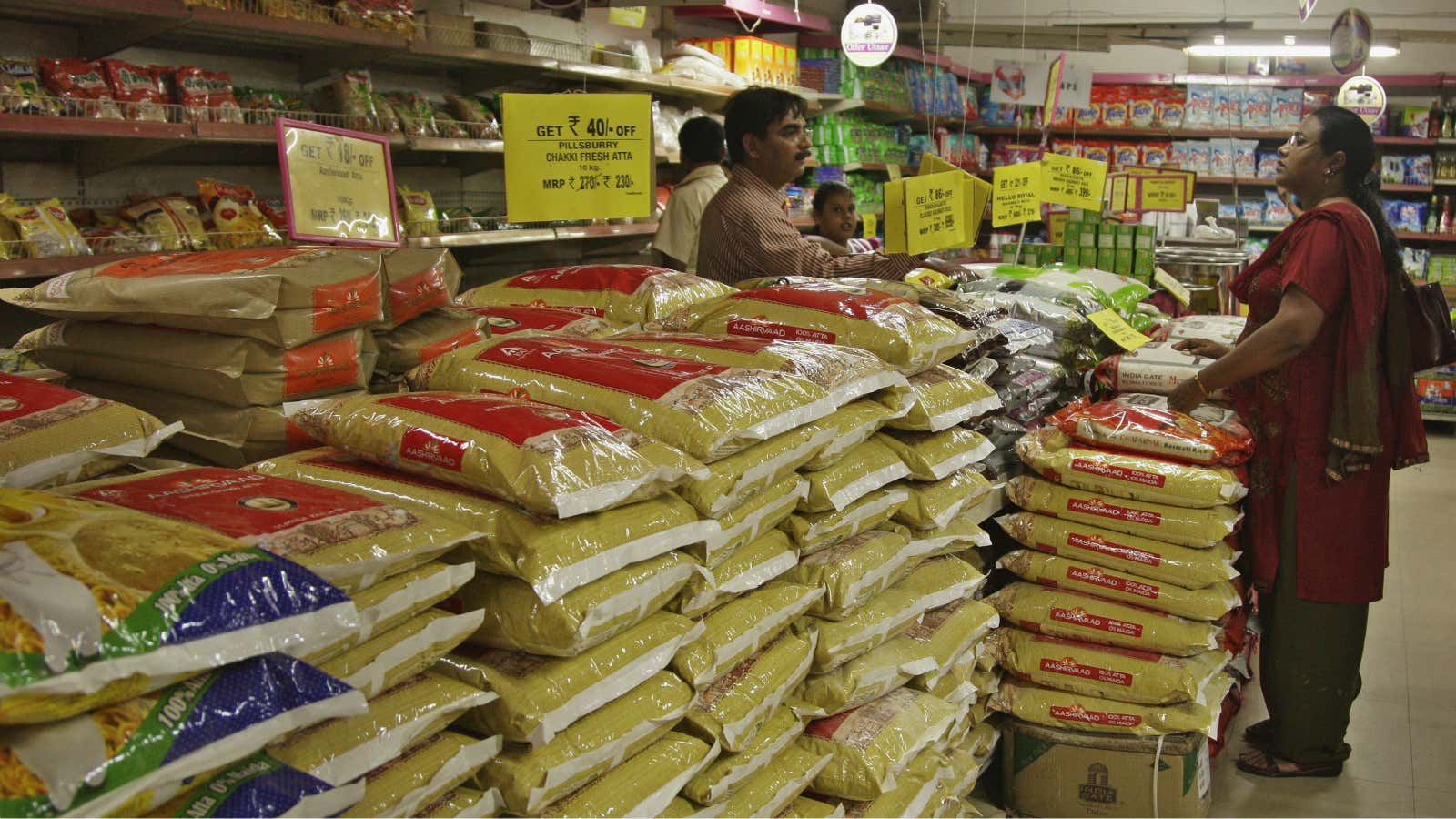Cashless Indians are giving consumer goods companies the jitters.
From slashing marketing budgets to toning down growth estimates, the heavily cash reliant sector is scrambling to counter the effects of demonetisation.
After witnessing sluggish growth following two consecutive years of low rainfall and competition from upstarts like Patanjali, things were only recently beginning to look up for established consumer goods companies in Asia’s third-largest economy. With better monsoon rains in 2016, especially in drought-hit rural markets, sales saw an uptick in the second half of the financial year. Earlier this year, financial services company Nomura estimated a 15.6 % growth in revenue for the consumer goods sector during the second half of current fiscal.
Now, demonetisation could well derail that trend.
So long 2016!
HUL, the country’s largest consumer goods maker that had earlier warned of pressure on near-term sales, said the impact of demonetisation will now spill into the March quarter of financial year 2017. The company, which sells everything from Lux soaps to Surf Excel washing powder, is particularly concerned about shrinking liquidity in the market.
Other companies such as Mumbai-based Godrej Consumer Products, which sells Cinthol soaps, are estimating that the cash crunch will stall growth rates across the consumer goods industry.
“Given the good monsoon this year, rural sales had begun picking up post harvest from October onwards. This has, however, been significantly impacted in the last few weeks due to demonetisation,” Vivek Gambhir, managing director, Godrej Consumer Products said on Dec. 12.
The hinterlands have been hit, but urban households, too, are suffering. “Not just rural, I think the overall country’s recovery…. We were just about seeing categories starting to pick up… I think it (demonetisation) has derailed it (recovery) for sure,” explained Varun Berry, chief executive at biscuit maker Britannia. To counter the slowdown, Britannia slashed manufacturing by 20% within days of the government’s decision.
Dabur, the maker of Vatika shampoo among other products, has postponed “key launches,“ CEO Sunil Duggal told The Economic Times newspaper. Citing lack of money in circulation, the company has put November launches on hold till at least the March quarter, or till the cash situation returns to normal.
On Dec. 17, The Economic Times reported that ITC, which sells packaged food and soaps and shampoos, candy company Perfetti Van Melle, and hair oil major Marico were all cutting back on marketing spends.
Trouble and recovery
Over 90% of India’s FMCG market runs on small mom-and-pop neighbourhood stores that pick up stocks from wholesalers or distributors paying cash. Research agency Nielsen, which tracked the packaged goods industry, estimated that two weeks into demonetisation business had fallen by at least 60% across small traders.
As a result, companies such as Dabur warned that neighbourhood stores could be hit the hardest, especially in smaller markets.
“While the impact varies across channels and geographies… the stress is highest for wholesalers and small town grocery shops who are facing a severe liquidity crisis and destocking,” Dabur said in a filing with the stock exchange on Dec. 05 (pdf). Dabur, however, said the situation is temporary in nature.
Temporary or not, some top executives are not particularly optimistic. Various estimates suggest that it could take the government between four and five months more to restore normalcy.
“It (demand) might come back to normal or just about below normal, but is it going to have the same kind of momentum that we were seeing in the last three months? Probably not,” Britannia’s Berry added.
